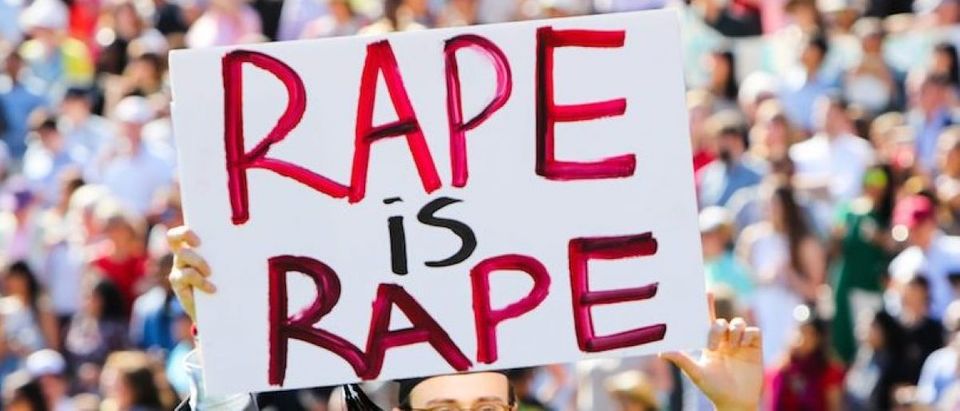Stanford University is getting blasted by The New York Times and numerous other media outlets for adopting a method of adjudicating sexual assaults that gives additional protections to accused students.
In a massive article published Thursday, the Times aggressively blasted Stanford for what it suggested was a huge miscarriage of justice.
“A Majority Agreed She Was Raped by a Stanford Football Player,” the headline said. “That Wasn’t Enough.”
The story then recounted the experience of an unnamed female student, who accused a member of Stanford’s football team of raping her. Rather than reporting this serious offense to the police for criminal prosecution, the student chose to only accuse him via a campus tribunal.
A non-professional panel of five administrators, faculty, and student volunteers voted 3-2 that the accused athlete was guilty, but Stanford rules at the time required at least a 4-1 vote to find him responsible. The accuser was allowed a full rehearing after an appeal, but the second hearing turned out the same way, with a 3-2 vote. As a result, the accused player remains on campus and a member of the football team.
As a result, the Times is taking Stanford to task, accusing it of affording too many protections toward accused students. Then, the paper criticizes the school further over a new process it adopted for sexual assaults in 2015. Under the new process, a panel of only three highly-trained individuals will hold hearings on sexual assault accusations, and a unanimous 3-0 vote will be needed to find a student responsible. The implication of the Times’ story is that such a process is extremely favorable toward accused students and hostile toward alleged victims.
Numerous other media outlets immediately followed up the Times piece. Time, SFGate, and other publications piled on, focusing on Stanford’s failure to expel or suspend the football player.
In condemning Stanford, though, the Times downplayed some notable facts in the case.
For example, the accuser is quoted complaining that her hearing was “stacked against her,” because she couldn’t have a lawyer “guide” her testimony during her hearing. Not highlighted is the fact the accused student wasn’t allowed to attend the hearing at all, but instead had to listen via phone. The accused wasn’t allowed to cross-examine his accuser either, but could instead only propose questions to the hearing panel that they could choose to ask or not.
Stanford issued a statement Thursday defending its policies and sharply criticizing the Times.
“Stanford cares deeply about ensuring that our students are treated fairly and equitably on our campus and throughout our process for dealing with sexual assault,” the statement said. “Unfortunately, the New York Times story does not recognize this. The story is based on one side of a single case, provides an incomplete assessment of our efforts and contains many inaccuracies.”
Stanford noted that, far from being unusually lenient, its standards for judging sexual assault were based on those the state of California uses for civil cases. Like Stanford, California judges sexual assault civil cases using a “preponderance of the evidence” standard, and like Stanford, California requires a supermajority of jurors (9 out of 12) to assign responsibility for an offense.
In its response, Stanford also noted that 81 percent of cases involving sexual assault, sexual harassment, or other Title IX crimes ended in the accused being found responsible. In other words, while the Times portrays the deck as stacked against accusers, most of them are successful when actual hearings are held.
Stanford also accused the Times of getting basic facts wrong. While the Times says Stanford has only expelled a single student for sexual assault in the past three years, Stanford said four students have been expelled. In addition, the school’s response blasted the Times for failing to mention that Stanford policy mandates expulsion for anybody found responsible of sexual assault, a policy it described as above and beyond the norm.
Moreover, Stanford has good reason for trying to create a tribunal system that affords protections to accused students. In recent years, there have been multiple cases of suspended or expelled students successfully suing their schools after claiming they were railroaded off-campus by an inadequately fair process.
Follow Blake on Twitter
Send tips to blake@dailycallernewsfoundation.org.
All content created by the Daily Caller News Foundation, an independent and nonpartisan newswire service, is available without charge to any legitimate news publisher that can provide a large audience. All republished articles must include our logo, our reporter’s byline and their DCNF affiliation. For any questions about our guidelines or partnering with us, please contact licensing@dailycallernewsfoundation.org.


